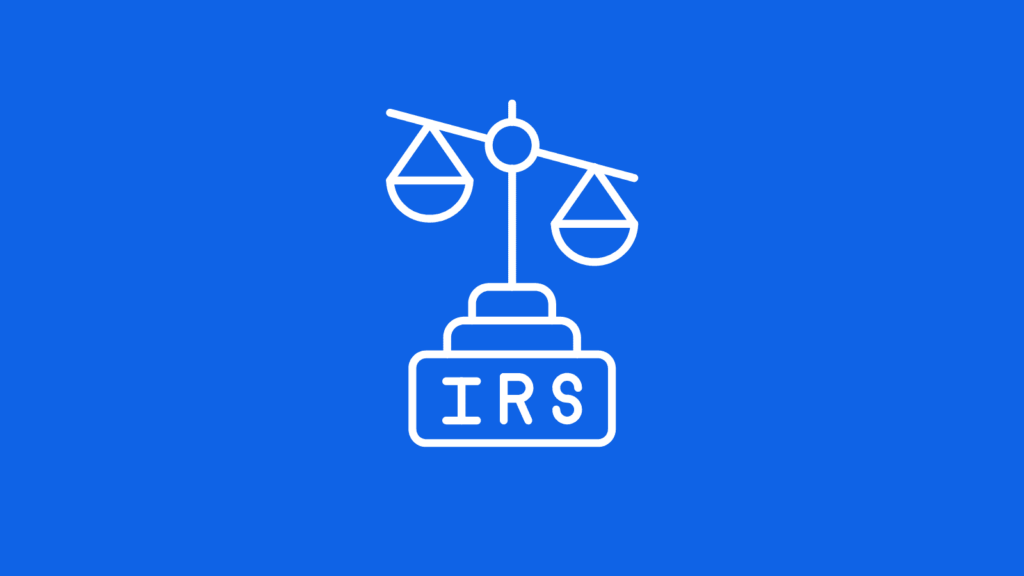Creating a Business Tax Plan: A Step-by-Step Guide for Working with Your CPA
January 9, 2023

peakreliance
Accounting, CPA, Taxes
I. Introduction
A. Importance of a Business Tax Plan
A well-designed business tax plan can help a company achieve its financial goals while staying compliant with tax laws. It allows a business to identify potential deductions and credits, evaluate tax liability, and plan for tax payments. By proactively addressing tax considerations, a business can minimize its tax liability and maximize its cash flow.
B. Working with a CPA
Working with a certified public accountant (CPA) is an important aspect of creating a comprehensive and effective business tax plan. A CPA is a trained professional who has the expertise to guide businesses through the complex tax laws and regulations. They can provide advice on tax-saving strategies and help ensure compliance with tax laws. A CPA can also help a business stay current with changes in tax laws and regulations, which can be a significant benefit in today’s rapidly changing tax environment. By working with a CPA, a business can develop a tax plan that is tailored to its unique needs and goals.
II. Identifying Business Tax Needs
A. Understanding Business Financials
The first step in identifying a business’s tax needs is to understand its financials. This includes reviewing income statements, balance sheets, and cash flow statements to gain an understanding of the business’s revenue, expenses, and profitability. A CPA can assist in this process by providing guidance on financial statement analysis and identifying any potential issues or areas for improvement. By understanding the financials, a business can make informed decisions about its tax strategy.
B. Determining Potential Deductions and Credits
Once a business has a clear understanding of its financials, the next step is to determine potential deductions and credits. These can include deductions for business expenses such as rent, equipment, and employee benefits. There may also be tax credits available for certain types of businesses or specific business activities. A CPA can assist in identifying these deductions and credits, which can help to minimize the business’s tax liability.
C. Evaluating Tax Liability
Evaluating the business’s tax liability is an essential step in identifying tax needs. This involves assessing the business’s current and projected income tax liability and determining if any tax planning strategies can be used to reduce it. Factors to consider include the business’s profitability, expected growth, and potential changes in tax laws. A CPA can provide guidance on evaluating tax liability, and use their knowledge of the tax laws to give advice on how to minimize the tax burden on the business.
By understanding business financials, identifying potential deductions and credits and evaluating tax liability, business owner will get a clear picture of the business tax situation which will be the starting point for next step in the process: developing the tax plan.
III. Developing the Tax Plan
A. Setting Financial Goals
A key aspect of developing a business tax plan is setting financial goals. This includes determining the business’s short-term and long-term financial objectives, such as increasing revenue, reducing expenses, and improving cash flow. Setting these goals will help the business to focus its tax planning efforts and ensure that its tax strategy aligns with its overall business strategy. A CPA can provide guidance on goal setting and help ensure that the goals are realistic and achievable.
B. Planning for Tax Payments
Once financial goals have been established, the next step is to plan for tax payments. This includes determining the business’s tax liability and determining the best way to meet that liability. This can include planning for estimated tax payments, or taking advantage of tax deferral opportunities. A CPA can provide guidance on tax payment options and assist in developing a plan that meets the business’s financial goals while complying with tax laws and regulations.
C. Implementing Tax-saving Strategies
Implementing tax-saving strategies is an important aspect of developing a tax plan. These strategies can include taking advantage of deductions and credits, utilizing tax-advantaged investment opportunities, and planning for retirement. A CPA can provide guidance on the various tax-saving strategies available and help the business determine which ones are most suitable for its specific circumstances. These strategies can help a business to minimize its tax liability and maximize its cash flow.
By setting financial goals, planning for tax payments, and implementing tax-saving strategies, the business will be able to optimize its tax situation to reach its objectives and be in a good position for the next step: implementation of the plan.
IV. Implementing the Tax Plan
A. Communicating with the CPA
Effective communication is key to successfully implementing a business tax plan. A business should establish regular communication with its CPA to ensure that both parties are aware of any changes to the business’s financial situation or tax laws that may affect the tax plan. A CPA can provide guidance on the best way to communicate financial information and answer any questions the business may have. By maintaining open and regular communication, a business and its CPA can work together to ensure the successful implementation of the tax plan.
B. Keeping Accurate Records
Another important aspect of implementing a business tax plan is keeping accurate records. This includes maintaining detailed records of income and expenses, keeping accurate books and records, and keeping track of all financial transactions. Accurate records are essential for both compliance with tax laws and for demonstrating the accuracy of financial information to the CPA. A CPA can provide guidance on record-keeping best practices and review the business’s records to ensure they are complete and accurate.
C. Staying Compliant with Tax Laws
Staying compliant with tax laws is essential for implementing a business tax plan. This includes understanding and complying with the tax laws that apply to the business, filing required tax returns, and making timely tax payments. A CPA can assist in staying compliant by providing guidance on tax laws and regulations, preparing and filing tax returns, and advising on any necessary compliance measures. By staying compliant with tax laws, a business can avoid costly fines or penalties and can focus on implementing its tax plan to achieve its financial goals.
Implementing a tax plan is an ongoing process and by regularly communicating with a CPA, keeping accurate records and staying compliant with tax laws, business can make sure that the plan is working effectively and make adjustments as needed.
V. Reviewing and Revising the Tax Plan
A. Monitoring Progress Towards Goals
After implementing a business tax plan, it is important to regularly monitor progress towards the established goals. This includes tracking the business’s financial performance and comparing it to the objectives set out in the tax plan. By monitoring progress, a business can identify any areas where the plan is not working as expected, and make adjustments as needed. A CPA can assist in this process by reviewing financial statements, providing guidance on performance metrics, and helping the business track its progress towards its goals.
B. Making Adjustments as Needed
As a business’s financial situation changes, it may be necessary to make adjustments to the tax plan. This can include revising financial goals, adjusting tax-saving strategies, or making changes to the plan’s implementation. A CPA can assist in this process by providing guidance on potential adjustments, recommending changes, and implementing new strategies. By making timely adjustments, a business can ensure that its tax plan remains effective and aligned with its goals.
C. Staying Current with Tax Laws and Regulations
The tax laws and regulations are subject to change, so it is important for a business to stay current with the most recent developments. This includes monitoring for changes in tax laws and regulations, which could have an impact on the business’s tax plan. A CPA can assist in this process by providing updates on new tax laws and regulations, and advising the business on how to stay compliant. By staying current with tax laws and regulations, a business can ensure that its tax plan remains effective and compliant, and take advantage of new opportunities as they arise.
Regularly reviewing and revising the tax plan allows business to adjust and optimize the plan to ensure it is meeting the business’s goals and objectives and stays compliant with current laws and regulations. A CPA can play a crucial role in this process by providing guidance and support in every step of the way.
VI. Conclusion
A. Summary of Key Points
Creating a business tax plan is a vital step in achieving financial success and staying compliant with tax laws. It involves understanding the business’s financials, identifying potential deductions and credits, evaluating tax liability, setting financial goals, planning for tax payments, and implementing tax-saving strategies. Regular review and revisions are necessary to ensure the plan remains effective and aligned with the business’s goals. A certified public accountant (CPA) can provide expert guidance and support throughout the process.
B. Importance of Regular Review and Revisions
Regular review and revisions are essential for ensuring that a business tax plan remains effective over time. As the business’s financial situation changes, the tax plan may need to be adjusted to reflect new circumstances. Staying current with tax laws and regulations is also important to ensure that the plan remains compliant. By conducting regular reviews and revisions, a business can ensure that its tax plan remains aligned with its goals and that it is taking full advantage of all tax-saving opportunities.
C. Next Steps for Implementing a Successful Business Tax Plan with the Help of a CPA
To implement a successful business tax plan with the help of a CPA, the first step is to schedule a consultation with a reputable and experienced CPA firm. Don’t let taxes hold your business back. Contact Peak Reliance CPA today at +1 (718) 218-5558 or via email at [email protected] to schedule a consultation and start developing a comprehensive business tax plan tailored to your unique needs and goals. During the consultation, the CPA will review your business’s financials, identify potential deductions and credits, and evaluate your tax liability. Based on this information, the CPA will work with you to set financial goals, plan for tax payments, and implement tax-saving strategies. Ongoing communication and regular reviews will help to ensure the continued success of the tax plan.
Post Tags :
About Us
Empowering small businesses and individuals with efficient and reliable bookkeeping & tax services.



















